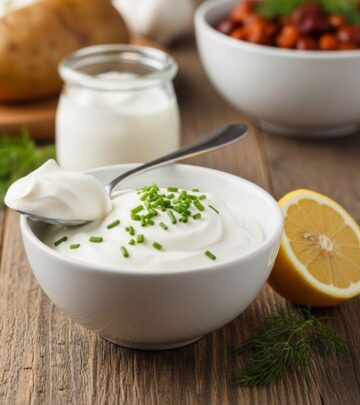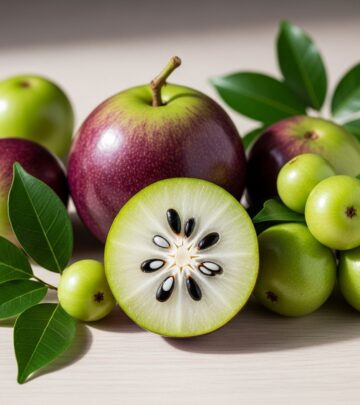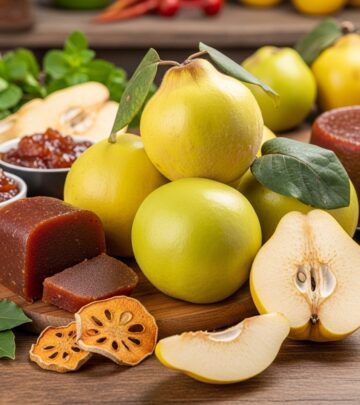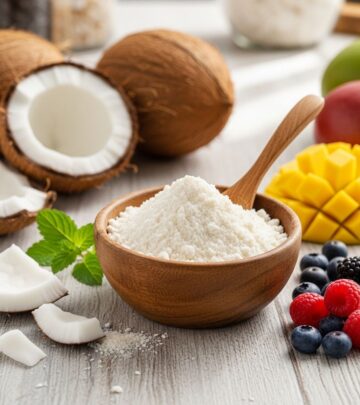Effective Home Remedies for Bad Breath: Natural Solutions for Fresh Breath
Everyday ingredients work together to neutralize odors and uplift oral comfort.
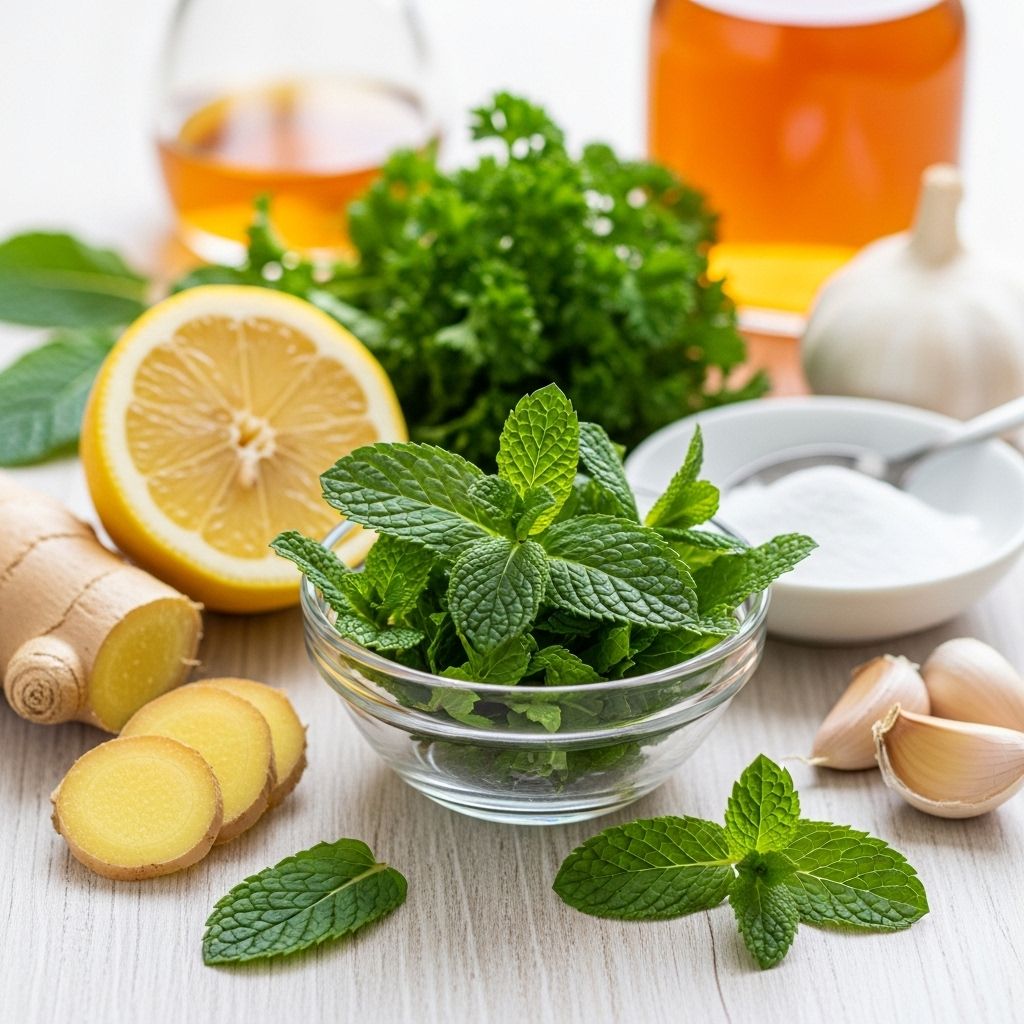
Bad breath, or halitosis, is a common yet often embarrassing problem affecting people of all ages. While it may sometimes signal a deeper health concern, most often bad breath is linked to poor oral hygiene, diet, dry mouth, or the buildup of bacteria in the mouth. Fortunately, there are many science-backed home remedies and lifestyle changes that can help you maintain fresh breath naturally. In this comprehensive guide, we will cover all major causes of bad breath, discuss practical oral care rituals, and detail the most effective natural solutions for conquering bad breath.
What Causes Bad Breath?
Understanding the underlying causes of bad breath is crucial for choosing the right remedy. The primary sources include:
- Poor oral hygiene: The buildup of food particles, plaque, and bacteria on teeth and tongue creates an unpleasant odor.
- Dry mouth: A lack of saliva reduces the mouth’s natural cleaning ability, allowing bacteria to thrive.
- Diet choices: Consuming foods with strong odors, like garlic or onions, can cause temporary bad breath.
- Smoking and tobacco products: These dry out the mouth and leave a lingering odor.
- Underlying health conditions: Issues like sinus infections, diabetes, acid reflux, and periodontal disease can result in chronic bad breath.
Simple and Effective Home Remedies for Bad Breath
Many home remedies work by either neutralizing odors, killing bacteria, or promoting saliva production. Below are the most reliable solutions you can try at home:
Baking Soda Mouthwash
Baking soda is a powerful but gentle cleanser often found in toothpastes. Its alkaline nature neutralizes acids in the mouth and helps fight odor-causing bacteria.
- Mix 1 cup of warm water with 2 teaspoons of baking soda.
- Swish the solution in your mouth for 30 seconds, then spit out.
- Repeat as needed for long-lasting freshness.
Warm Salt Water Gargle
Gargling with warm salt water is an age-old remedy to eliminate bacteria and relieve inflammation in the mouth and throat.
- Combine 1 cup of warm water and 1/2 teaspoon of salt.
- Gargle and swish for 30 seconds before spitting out.
- This remedy helps clear mucus and reduce oral bacteria.
Lemon Juice Rinse
With natural antibacterial properties and a fresh citrusy aroma, lemon juice not only masks bad breath but also helps fight odor-causing bacteria.
- Mix 1 tablespoon of lemon juice in 1 cup of warm water.
- Use as a mouthwash, swishing for 30 seconds before spitting out.
- You can also add lemon juice to herbal teas or water for extra freshness.
Apple Cider Vinegar (ACV) Solution
Apple cider vinegar balances oral pH and offers antibacterial benefits.
- Mix 1 tablespoon of ACV in a glass of water.
- Gargle with the solution before meals or use as a mouthwash.
- ACV can support digestion, which indirectly helps minimize bad breath from indigestion.
Cloves
Cloves are renowned for their strong antiseptic abilities. They help kill bacteria and leave the mouth refreshed.
- Chew whole cloves directly after meals.
- Alternatively, make a clove tea: Boil 1 cup of water, add 1 teaspoon of ground or whole cloves, steep for 5 minutes, cool, and use as a rinse.
Cinnamon
Cinnamon contains cinnamic aldehyde, a compound that can reduce the number of bad breath-causing bacteria by up to 50%.
- Add one stick of cinnamon to hot water to make a soothing mouth rinse.
- Let it cool, swish in the mouth, then spit out.
Crunchy Fruits and Vegetables
Eating raw, crunchy produce such as apples, carrots, and celery acts as a natural toothbrush, scraping away food particles and bacteria from teeth.
- Snack on celery, carrots, apples, or pears after meals for a refreshing clean feeling and fresh breath.
Green Tea
Green tea is packed with polyphenols and phytochemicals that are naturally antibacterial and help reduce odor-causing bacteria in the mouth.
- Brew a cup of green tea and enjoy it daily, either hot or cold, for sustained oral freshness.
Fennel Seeds
Chewing fennel seeds not only freshens breath but also promotes digestion, reducing odor at its source.
- After meals, chew a spoonful of raw fennel seeds for instant freshness.
Mint, Parsley, and Fresh Herbs
Chewing on mint leaves, parsley, basil, or other green herbs can mask smells and neutralize sulfur compounds.
- Chew a few sprigs of fresh herbs, or add them generously to salads and drinks for their breath-freshening benefits.
Fermented & Probiotic Foods
Yogurt, kefir, sauerkraut, and other probiotic-rich foods help balance oral bacteria and support digestive health, which in turn helps minimize bad breath.
- Include natural probiotic options like unsweetened yogurt, kimchi, kombucha, or fermented pickles in your diet.
Essential Oral Hygiene Practices to Prevent Bad Breath
- Brush twice daily: Use a soft-bristled brush and fluoride toothpaste to clean teeth thoroughly after breakfast and before bed.
- Floss daily: Remove plaque and trapped food between teeth where toothbrushes often miss.
- Clean your tongue: Use a tongue scraper or your toothbrush to gently clean your tongue’s surface.
- Rinse after meals: Swishing water or natural mouthwashes helps wash away food and odor-causing bacteria.
- Stay hydrated: Drinking water regularly keeps the mouth moist and minimizes dry mouth, a leading cause of halitosis.
Dietary and Lifestyle Tips to Maintain Fresh Breath
- Avoid strong-smelling foods: Limit intake of raw onion, garlic, coffee, and spicy foods when you want to maintain fresh breath.
- Quit smoking and avoid tobacco: Tobacco products dry out the mouth and aggravate bad breath.
- Eat balanced meals: Choose fiber-rich fruits and vegetables and reduce processed sugars, as high sugar can fuel bacterial growth.
- Regular dental check-ups: Visit your dentist at least twice a year to identify and address any underlying dental issues that may cause bad breath.
When to Seek Professional Help?
While home remedies can address most cases of bad breath, consult a healthcare provider or dentist if your condition:
- Persists despite good oral hygiene and lifestyle changes
- Is accompanied by painful or swollen gums, loose teeth, or persistent mouth sores
- Is associated with other systemic symptoms such as fever, excessive thirst, or unexplained weight loss
Persistent bad breath may signal gum disease, tooth decay, sinus infections, gastrointestinal issues, diabetes, or other health concerns requiring targeted care.
Table: Quick Reference — Natural Bad Breath Remedies
| Remedy | How to Use | Key Benefit |
|---|---|---|
| Baking Soda Rinse | Swish 2 tsp in 1 cup water | Neutralizes mouth acids, kills bacteria |
| Salt Water Gargle | Gargle 1/2 tsp salt in 1 cup warm water | Kills germs, soothes throat |
| Lemon Juice | Mix 1 tbsp in 1 cup water, rinse mouth | Cleanses and refreshes breath |
| Clove Tea | Brew 1 tsp cloves in hot water, rinse | Kills bacteria, freshens mouth |
| Cinnamon Tea | Simmer stick in water, use as rinse | Reduces oral bacteria |
| Crunchy Produce | Eat apples, carrots, celery | Scrubs away debris, stimulates saliva |
| Green Tea | Brew and drink daily | Antibacterial, deodorizing |
| Herbs (Mint, Parsley) | Chew fresh leaves, add to meals | Masks odor, neutralizes sulfur |
| Fennel Seeds | Chew after meals | Freshens breath, supports digestion |
| Probiotic Foods | Eat yogurt, sauerkraut | Balances oral flora, gut health |
Frequently Asked Questions (FAQs)
Q: Can home remedies replace professional dental care?
A: No. While home remedies can help with minor or temporary cases of bad breath, they should not replace regular dental check-ups or be relied upon if bad breath is persistent or severe.
Q: How often should I use these remedies?
A: Most rinses and freshening techniques can be used daily or after meals. Chewing herbs, seeds, or crunchy produce can be done as often as needed. However, introduce new habits gradually and avoid overuse, especially with acidic or abrasive ingredients.
Q: Will drinking more water help my breath?
A: Yes. Hydration stimulates saliva production, washes away food debris, and minimizes the risk of dry mouth, a leading cause of halitosis.
Q: What should I do if my bad breath persists even after trying home remedies?
A: Consult a dentist or healthcare provider. Persistent halitosis can be a sign of gum disease, tooth decay, or systemic health conditions requiring specific medical evaluation.
Q: Are natural mouthwashes as effective as commercial products?
A: Many natural solutions, such as baking soda or saltwater rinses, can be effective for mild cases. However, commercial mouthwashes often include additional antibacterial agents or fluoride. Choose according to your needs and consult your dentist for personalized advice.
Key Takeaways
- Bad breath is usually manageable at home with a combination of strong oral hygiene and simple, natural remedies.
- Eating a balanced diet, staying hydrated, and using freshening foods or herbs can dramatically reduce oral odor.
- Persistent, unexplained, or severe cases of bad breath should be evaluated by a dental professional or healthcare provider.
References
- https://www.cnet.com/health/personal-care/7-bad-breath-remedies-you-likely-have-at-home-already/
- https://pittstdentalcentre.com.au/banish-bad-breath-with-these-effective-home-remedies/
- https://timesofindia.indiatimes.com/life-style/health-fitness/health-news/6-home-remedies-to-get-rid-of-bad-breath/articleshow/114783231.cms
- https://capehartdental.com/blog/bellevue/2024/7406/banish-bad-breathe/
- https://www.stylecraze.com/articles/effective-home-remedies-for-bad-breath/
- https://www.stylecraze.com/articles/benefits-of-oil-pulling/
- https://www.mayoclinic.org/diseases-conditions/bad-breath/symptoms-causes/syc-20350922
Read full bio of medha deb

